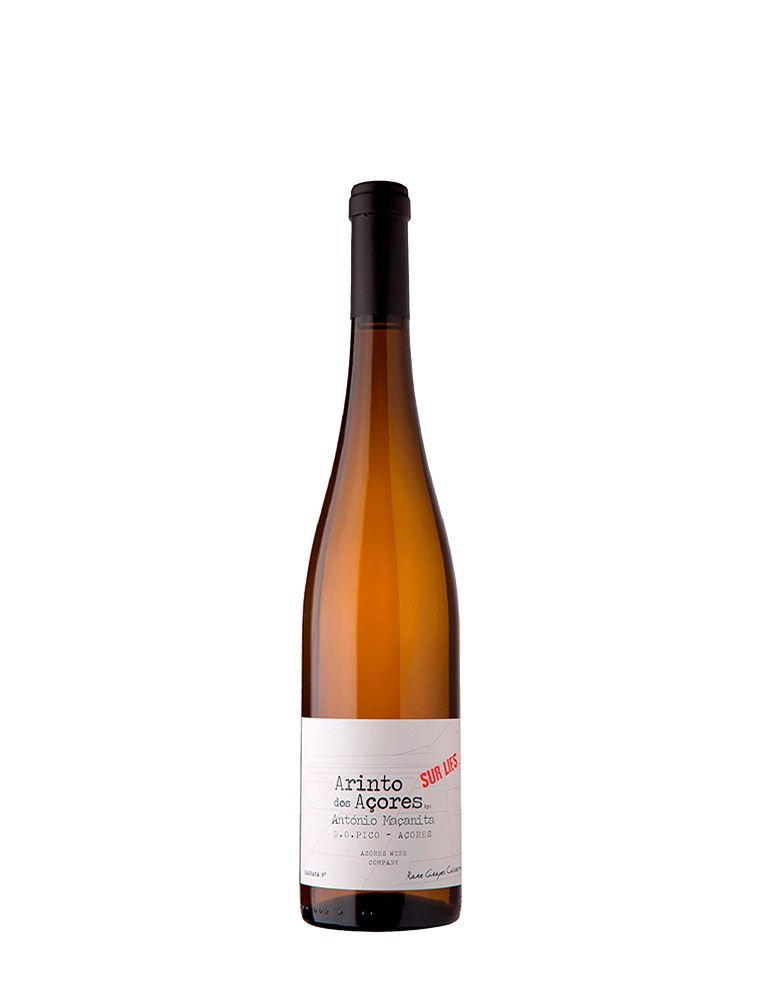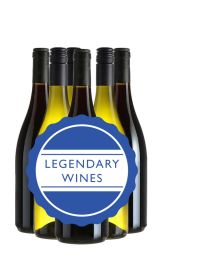2020 Azores Wine Co Arinto Sur Lies

Grape
Arinto dos Açores.
Its Origins
In 2010, António Maçanita began, along with the S. Miguel Agricultural Development Services, the winemaking work of the Terrantez do Pico grape variety. Unique in the world, this nearly extinct caste reveals a surprising freshness, mineral quality and salinity. Afterwards, in 2013, there was a joint venue on Pico island, put together by Fita Preta wines and Insula Vinus, in order to produce a wine based on one more autochthon grape variety of the Region: Arinto dos Açores. This is how the Azores Wine Company was born and in 2014, the first year, it was already producing 10.000 bottles. The single varieties white wines Arinto dos Açores and Verdelho O Original of the Rare Grapes Collection represent more than half the production. However, the red and rose wines are also quite surprising. Lastly, there is the work already being developed in the fortified wines domain, in search of the famous Pico wines that travelled the world over 400 years ago. Maçanita said that in Azores, they are under the "Proteção integrada regime," which translates to "sustainable." They also have four hectares under organic. And with the impossibility of using tractors, all vineyards are treated by hand. In regards to sulfites, he said they are "for now the only trustable, measurable analysis that demonstrates how a winery works. In this era of so much [misinformation] about natural/organic/biodynamic, SO2 levels [are] the only thing we can measure. We every year [are] the lowest or one of the lowest of Portugal....Our whites are half to one-third of average sulfites [for] whites. For me, it is relevant, and that is why I started to put it on the back label. Transparency yes, BS no...."
What The Critics Say
94/100 Parker's Wine Advocate, Mark Squires
"The 2020 Arinto dos Açores Sur Lies was partly (80%) aged in neutral wood, the rest in stainless steel. It is very dry and comes in at 12.3% alcohol. As much as I like the regular Arinto, I tend to prefer this a little better for its texture, if nothing else. Once past that sensual texture, it is a replay of the regular Arinto in this report, showing plenty of power and a long, lingering finish. Here, though, I would say the power might already show better integration while the regular Arinto has a bit more character. So, reasonable minds might differ on their preferences. It should hold for a decade or so from now. It will be interesting to compare as they age. There were 5,503 bottles produced." Drink 2022 - 2033
17.5/20 JancisRobinson.com, Julia Harding MW
"Full bottle 1,268 g. 5,503 bottles produced. Manual harvest, whole-bunch pressing, natural racking after 24 hours, and fermentation in small 600- to 1,000-litre stainless-steel tanks, with lees stirring. Although there is some similarity with the Indígenas just tasted, this has a more creamy/mealy aroma – you'd almost suspect oak influence but it seems to be, according to the tech sheet, only lees influence. Lightly honeyed and cedary on the palate, more developed, richer, more oily and spicy, more orange-citrus in the aroma, yet with stunning freshness and a long, incredibly salty finish – more noticeable than on the Indígenas because of the contrast with the creamy texture. (JH)." Drink 2022 - 2030
| Variety | Other white |
|---|---|
| Closure | Cork |
| Volume | 750ml |
| Alcohol | 12.50% |
| Maturity | 2020 - 2026 |
This Wine Goes Well With
Taste
We deliver throughout New Zealand and to some locations overseas. Our deliveries are made by trusted third party carriers. For further details on prices and delivery options please go to DELIVERY INFORMATION section of our site.
If for any reason you are not entirely happy with your order or you suspect that they may be affected by a quality issue, please do not hesitate to contact us and we will remedy the problem straight away. Contact us on 0800 422 767.






